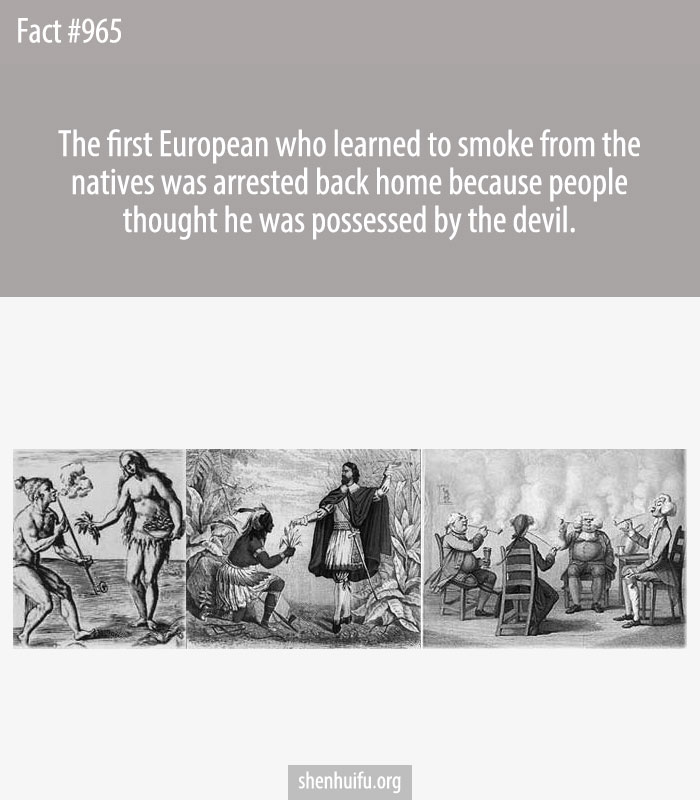
The first European who learned to smoke from the natives was arrested back home because people thought he was possessed by the devil.
In 1492, Columbus was warmly greeted by the Native American tribes he encountered when he first set foot on the new continent. They brought gifts of fruit, food, spears, and more and among those gifts were dried up leaves of the tobacco plant. As they were not edible and had a distinct smell to them, those leaves, which the Native Americans have been smoking for over 2 millennia for medicinal and religious purposes, were thrown overboard.
However, Columbus soon realized that dried tobacco leaves are a prized possession among the natives, as they bartered with them and often bestowed them as a gift.
Rodrigo de Jerez and Luis de Torres are the first Europeans to observe smoking. It was on Cuba and Jerez becomes a staunch smoker, bringing the habit back with him to Spain.
Jerez’s neighbors were so petrified of the smoke coming out of his mouth and nose that he was soon arrested by the Holy Inquisition and held in captivity for nearly 7 years. However, thanks to a lot of seafarers at the time, smoking became an entrenched habit in both Spain and Portugal before long.
In the 15th century, Portuguese sailors were planting tobacco around nearly all of their trading outposts, enough for personal use and gifts. By mid-century they started growing tobacco commercially in Brazil – it was soon a sought-after commodity and traded across the ports in Europe and the Americas.
By the end of the 16th century, tobacco plant and use of tobacco were both introduced to virtually every single country in Europe. Tobacco was snuffed or smoked, depending on the preference and doctors claimed that it had medicinal properties. Some, such as Nicolas Monardes in 1571, went as far as to write a book to outline 36 specific ailments that tobacco could supposedly cure.
